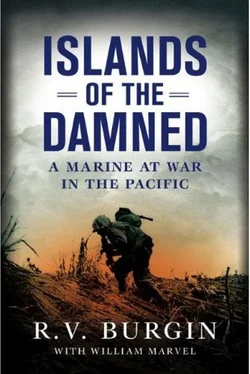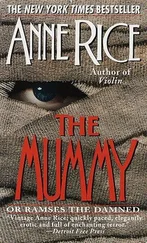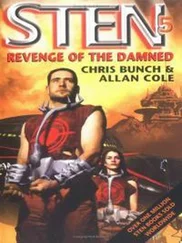“Are you drawing disability?” Mallory asked.
I wasn’t.
“And they didn’t ask you about it when you were discharged?”
I said they hadn’t mentioned anything about malaria or any medical problems.
“Well, somebody wasn’t doing his job,” he said. “What we’re going to do is put in for a pension and let you start drawing compensation for this.”
He showed me how to fill out the papers and gave me an addressed and stamped envelope. He also arranged for me to get on the list for the Civil Service exam for the Post Office.
A month or so afterward I got a check for 60 percent disability pay retroactive to my discharge.
In February, T. L. Hudson showed up. He’d gotten over the wounds he’d received on Okinawa. We found a boardinghouse where we could bunk together and the rent included breakfast. We became very close friends.
That month, I was notified that I had been recommended for a Bronze Star for my role in wiping out the machine-gun nest on Okinawa. This was the first I’d heard, but welcome news. I went out and bought my first and only set of Marine dress blues for the presentation ceremony, which was held in Dallas’s Oak Cliff YMCA. My dad and mother drove up from Jewett to stand beside their proud son, the only time they ever saw me in a Marine uniform.
When my health got to the point that I was able to go to work I decided to try the railroad company. They put me in telegraphy school for two months, but just before graduation I found out they planned to stick me in a little station way out just this side of El Paso. No town, no settlement of any kind, not even a gas station. Just a lonely railroad agency beside the track. I could imagine how Florence would take to that, and it wasn’t what I’d had in mind either, so I said, No, thanks. With Mallory’s help, I landed a job on the assembly line at the Ford plant in East Dallas. I worked there three months making $1.28 an hour—which was pretty good—when a letter came from the Post Office telling me to come in for the Civil Service exam.
I went to work for the Post Office on May 15, 1946, carrying the U.S. mail for eighty-four cents an hour, enduring the heat and fighting off mean dogs in East Dallas.
* * *
Back in Melbourne, Florence took the tram to the American consulate every Saturday, where she sat waiting patiently for the papers that would allow her to come to the United States. Women who had married American servicemen came and went, but there was nothing else either one of us could do but wait.
My sisters and mother were almost as eager as we were. They had been exchanging letters with Florence for more than a year. As soon as my mother found out we planned to marry, she wrote Florence that we were a simple farm family, not rich or glamorous. Florence wrote back that that was fine with her. She, too, came from a simple working-class family. After that, they hit it off just fine.
The year was almost over before we learned that the gate was finally open. In early January 1947, Florence said good-bye to her family and boarded a ship at Port Melbourne. There were five hundred passengers on board, and four hundred of them were the fiancées of American servicemen. I found us an apartment. It wasn’t the little cottage I’d envisioned those hours daydreaming in tents and foxholes halfway around the world. But it was a start. I had a good job, and she was on her way. She managed the whole thing, lining up passage on the ship and a railroad ticket from San Francisco to Dallas, and wrote me to expect her the morning of January 27.
Riding east on the train she made friends with an older woman, also bound for Dallas. Florence told the woman how she met this American Marine in Australia, how love had triumphed and that she was headed to Dallas to marry him.
The woman looked doubtful.
“Are you sure he’s going to be there at the station?”
“He’ll be there.”
As it turned out, I wasn’t.
I got to the Dallas Union Station that morning in plenty of time for the train. But it wasn’t the train she was on. I inquired when the next train would be in, then went back to the boardinghouse and had breakfast. I got back to the station fifteen minutes late for the next train and finally found Florence standing in the waiting room with her luggage, her new friend standing by her side in case I didn’t show up. Florence looked just like I remembered her, only better. We hugged like any couple in love who haven’t seen each other for years. The woman from the train disappeared. We never did get her name.
Florence had assumed we would be married on February 15, her twenty-first birthday. But we had an apartment. The refrigerator had been delivered. My family had even arranged for the church and a cake. And so on January 29, 1947, two days after she stepped off the train, three years and nine months after we met in Melbourne, my Australian bride and I were married in the Saner Avenue Church of Christ.
Though we had gotten off to a late start, we were like tens of thousands of other new couples in 1947, struggling to realize the American dream. Florence loved my family, and they loved her. She learned all my mother’s favorite recipes and fit right in. Our oldest, Margaret Ann, was born that November. We lived in the apartment for a few more months—T. L. Hudson was our upstairs neighbor—and then bought our first house, a two-bedroom in a quiet neighborhood close in. Vicki Lynn came along in 1950, then Vanessa Jo in 1953. Florence always told her mom she was going to have eleven boys and one girl. When our fourth girl came along in 1955, we said, That’s it, and gave her a boy’s name, Terrie Lee. A few years later we bought a three-bedroom a little farther out. And in 1965, we built our dream house in the country, on a wooded tract overlooking a stream.
I put the war out of my mind and buckled down to work at the Post Office. In 1947 I had my last episode of malaria, which landed me in the veterans’ hospital for a week. I got off the mail route that summer and became a postal clerk. A few years later I started studying for the supervisor’s exam. I went from clerk to line foreman to general foreman to tour superintendent and finally to superintendent of registered mail. Each step of the way I found my old Marine experience stood me well. It was like being a section leader. As I moved from one supervisor’s job to the next, I always made it my business to find out who were the natural leaders, the ones you could depend upon, and who were the troublemakers. And like my old San Diego drill instructors, I never had to yell at anyone to get anything done.
Three of our girls graduated from college. One went to a junior college. Florence and I became grandparents four times over. And then great-grandparents, three times so far. The girls are everything we could want, smart and successful.
* * *
In 1956 I took a leave of absence from the Post Office and Florence and I took the girls to Australia to meet her side of the family. We picked up a drive-away car in Dallas and motored up through Colorado and Utah, then on through Lake Tahoe to San Francisco, where we were to board our ship. It was a station wagon, so there was plenty of room for four active children.
We were driving across the Oakland Bay Bridge. Vicki Lynn, who was in her second year of school, was sitting behind me looking out the window at a car in the next lane, when she called out, “Look, Daddy, look! There’s Chineses!”
I glanced to my left. There was a car full of Asians. Chinese or Japanese, I didn’t know which. Instantly this cold chill came over me. They were the first I’d seen since the war.
We stayed in Australia ten months. The Australians are great people. They had three jobs waiting for me when we arrived. They made us feel welcome. But in the end, we came home, to the United States.
Читать дальше











